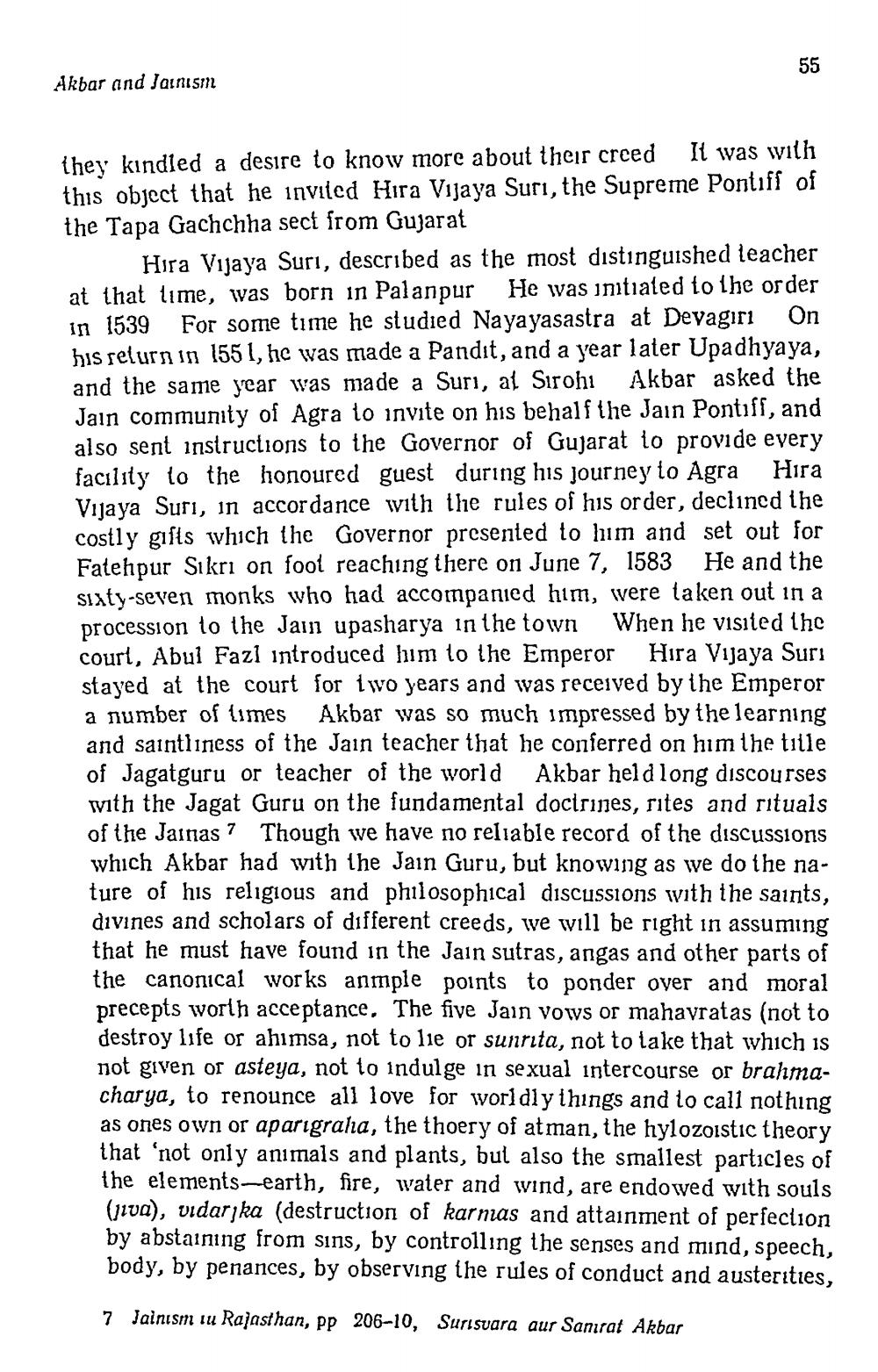________________
55
Akbar and Jainisin
they kindled a desire to know more about their creed It was with this object that he invited Hira Vijaya Suri, the Supreme Pontifs of the Tapa Gachchha sect from Gujarat
Hira Vijaya Suri, described as the most distinguished leacher at that time, was born in Palanpur He was initiated to the order in 1539 For some time he studied Nayayasastra at Devagiri On his return in 1551, he was made a Pandit, and a year later Upadhyaya, and the same year was made a Suri, at Sirohi Akbar asked the Jain community of Agra to invite on his behalf the Jain Pontifs, and also sent instructions to the Governor of Gujarat to provide every facility to the honoured guest during his journey to Agra Hira Vijaya Suri, in accordance with the rules of his order, declined the costly gifts which the Governor presented to him and set out for Fatehpur Sikri on foot reaching there on June 7, 1583 He and the sixty-seven monks who had accompanied him, were taken out in a procession to the Jail upasharya in the town When he visited the court, Abul Fazl introduced him to the Emperor Hira Vijaya Suri stayed at the court for two years and was received by the Emperor a number of times Akbar was so much impressed by the learning and saintliness of the Jain teacher that he conferred on him the title of Jagatguru or teacher of the world Akbar held long discourses with the Jagat Guru on the fundamental doctrines, rites and rituals of the Jainas 7 Though we have no reliable record of the discussions which Akbar had with the Jain Guru, but knowing as we do the nature of his religious and philosophical discussions with the saints, divines and scholars of different creeds, we will be right in assuming that he must have found in the Jain sutras, angas and other parts of the canonical works anmple points to ponder over and moral precepts worth acceptance. The five Jain vows or mahayratas (not to destroy life or ahimsa, not to lie or sunrita, not to take that which is not given or asteya, not to indulge in sexual intercourse or brahmacharya, to renounce all love for worldly things and to call nothing as ones own or aparigrala, the thoery of atman, the hylozoistic theory that 'not only animals and plants, but also the smallest particles of the elements-earth, fire, water and wind, are endowed with souls (jiva), vidaryka (destruction of karnias and attainment of perfection by abstaining from sins, by controlling the senses and mind, speech, body, by penances, by observing the rules of conduct and austerities,
7 Jainism iu Rajasthan, pp 206-10, Surisvara aur Samrat Akbar




